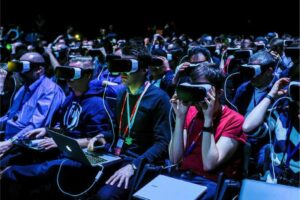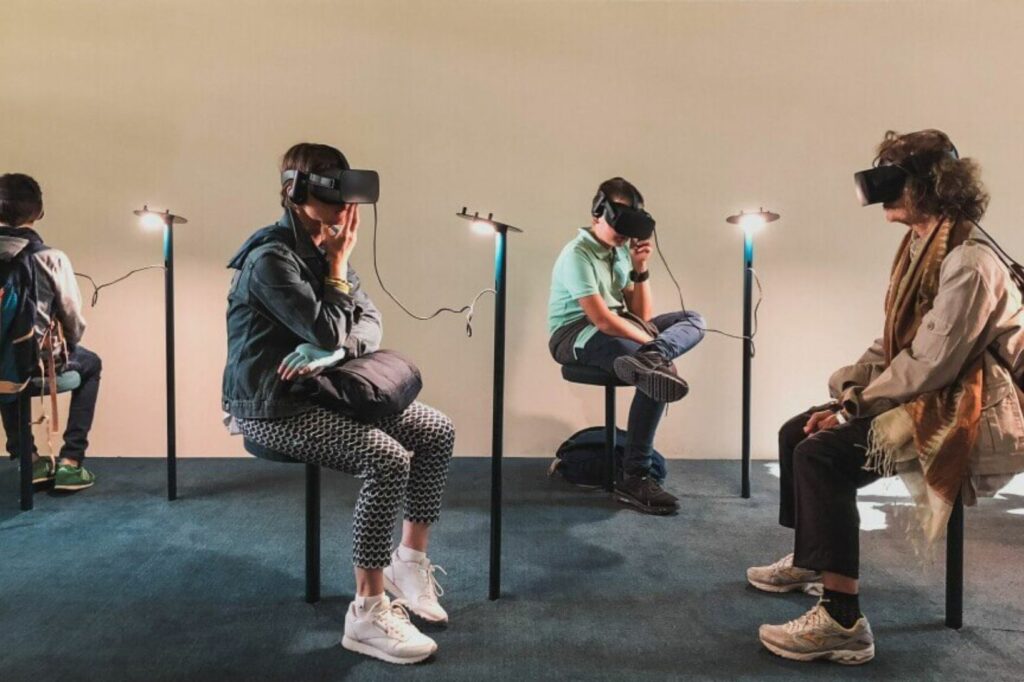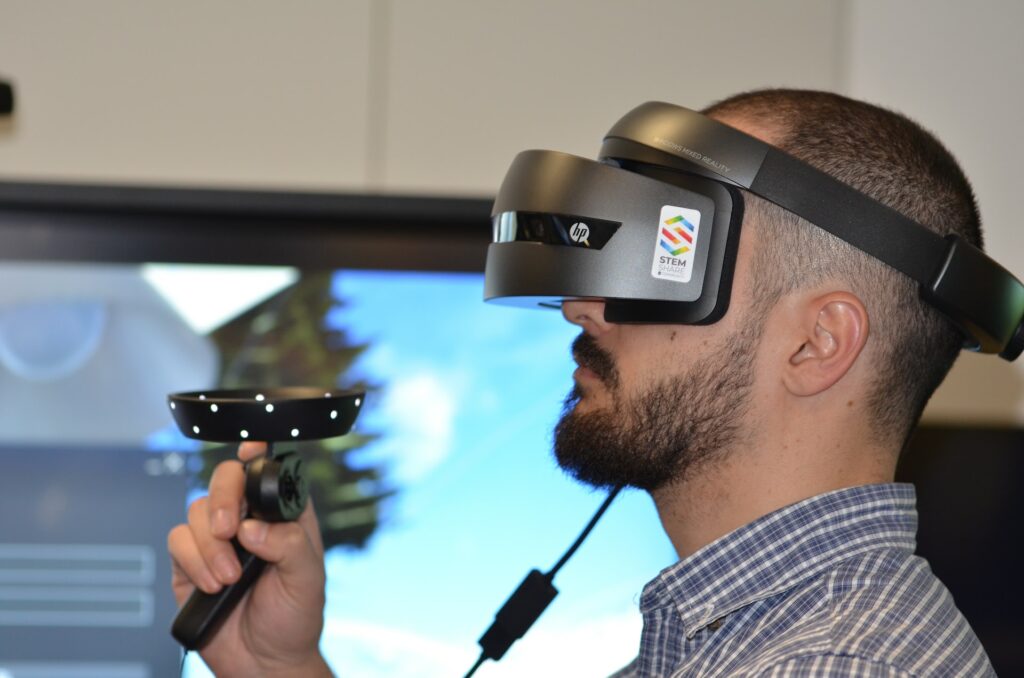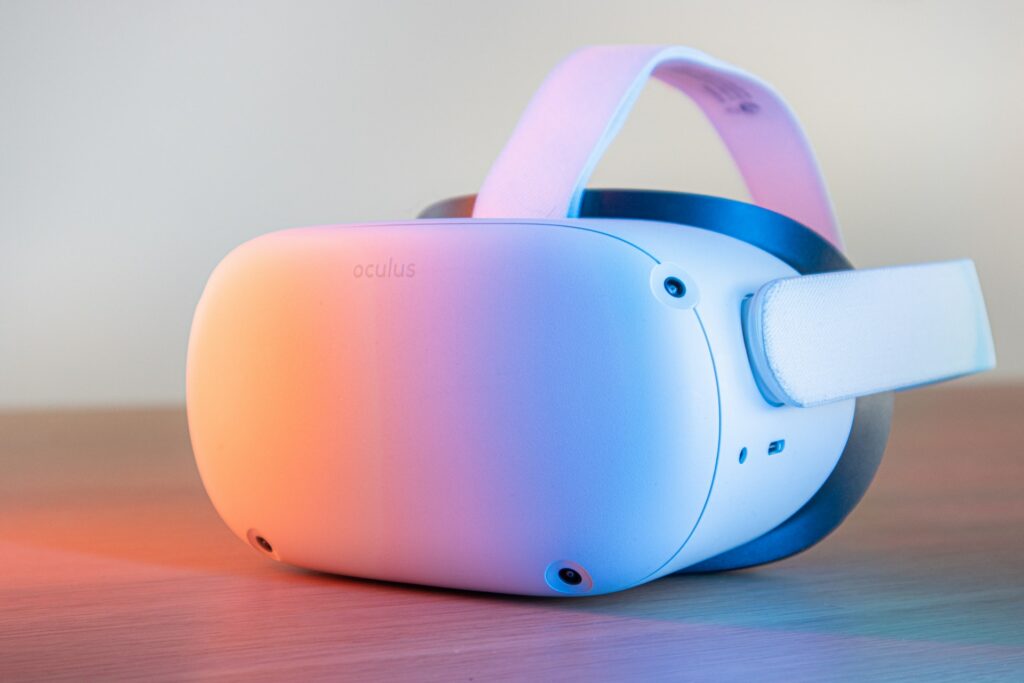Imagine the thrill of attending a concert, a sports match, or a conference from the comfort of your home, yet feeling as if you’re right there in the action. This isn’t a glimpse into some far-off future; it’s the present reality, thanks to virtual reality (VR) technology.
Within the events industry, VR is transforming the way we experience and interact with the world. Whether it’s a music festival or a business seminar, VR is delivering immersive experiences that blur the lines between physical and digital spaces.
Virtual Reality in Events
Delving deeper into virtual reality’s impact on events, its value addition and capability to blur the lines between physical and virtual realms ensures an immersive engagement level unparalleled by traditional methods.
Adding Value to Event Experiences

With VR technology, an unprecedented dimension is added into every event. Attendees don’t just watch; they join the scene, experiencing the event in a way that is more profound, real, and immersive. For instance, in conferences and trade shows, participants can interact with 3D models of products and experiences, receiving a hands-on understanding far richer than a 2D presentation or brochure. Similarly, music concerts or sports matches are no longer mere spectating activities; fans can immerse themselves in the action, feeling like they’re right there alongside their favorite stars.
Bridging the Physical and Virtual Gap
Virtual Reality, in its unique way, serves to bridge the gap between the physical and virtual world. It’s one thing to watch an event unfolding from a distance, but quite another to feel as though you’re part of the action. VR ensures this by mimicking physical presence in a digitally crafted environment, enabling event attendees to interact with that environment as if they were physically present there. A real-world example involves tour guides using VR to transport visitors to historical sites or exotic locations that are otherwise inaccessible, providing them a near-real experience in a virtually crafted world. This not only transforms how attendees experience events but also expands the possibilities for what those events can entail.
Use Cases of Virtual Reality in Events
Virtual Reality continues to carve out impressive applications, most notably in the events industry. Here, we explore a variety of distinctive VR use cases that are revolutionizing the way people interact at various events.
Virtual Conferences

Taking conferences to the VR platform turns geographical limitations into historical caveats. Participants from around the globe can join these conferences without booking flights or hotels. Key presentations can be attended in interactive, 3D environments, providing users much richer experiences than traditional videoconferencing. Social VR platforms such as AltspaceVR and Engage VR are making this possible by providing a ‘virtual attendance’ experience right in your living room.
Virtual Trade Shows and Exhibitions
In virtual trade shows, exhibitors set up digital booths to showcase their products or services, much like in a physical exhibition. Visitors explore these booths just as if they were there in person. They can inspect products from multiple angles and even interact with virtual prototypes. Examples ffeaturing this technology include the likes of VR expos such as VR World Congress and VRTO Virtual & Augmented Reality Conference.
Event Experiences

The transformative power of VR technology in the events industry is undeniable. Its ability to offer immersive experiences has not only increased engagement but also expanded audience reach. While there are challenges to overcome, such as technical glitches and user experience issues, the industry is showing resilience and adaptability. The integration of VR with social media and the emergence of entirely virtual events are trends that signal an exciting future. The COVID-19 pandemic has further underscored the importance of VR as a safe and flexible solution for events. Despite hurdles like stable internet connectivity and cybersickness, the shift in attitudes towards virtual events is a positive sign. It’s clear that VR is not just a passing trend in the events industry, but rather a game-changer that’s here to stay.



